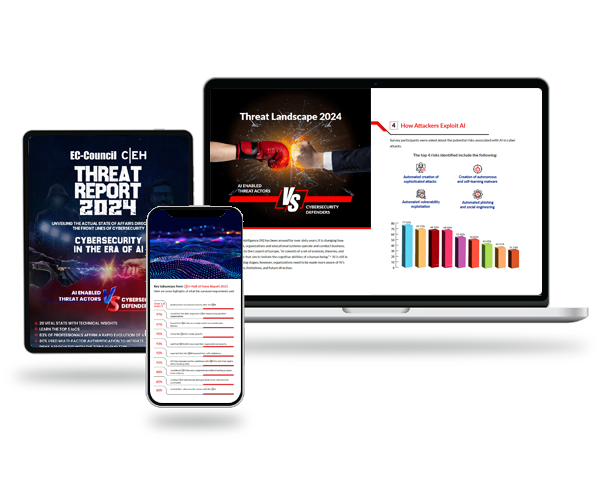- 087 941 5764
- impactful@lrmg.co.za
Articles

Love this. Share it Now!
Do you know whether your employees have absorbed the details of your new product training so that they can explain, and sell it, to your customers? Was last month’s training worthwhile – have important digital skills been retained? Have your people understood how the company’s new technology upgrades impact their work, and are they actually adopting the software? As a talent professional, or a manager of a team in any department, are you asking the right questions?
In every industry, companies all over the world are struggling with these kinds of issues. Complexity and constant change are facts of business life. Knowing how your people are doing is critical to status-check the implementation of business strategies and plans, and as a benchmark for progress.

In some sectors this is mission-critical. Aviation, chemicals, construction, mining, oil and gas exploration, energy, water and sanitation supply or infrastructure: these industries all have high risk quotients. As a result, the people who do the work must not only undergo regular assessments of their technical expertise, but also be fully and near-constantly appraised of their knowledge of all-round safety measures and their ability to mitigate risks. Are you sufficiently managing risk in regards to life, limb and livelihood?
Why? Because regulatory bodies require compliance, without which licenses to operate can be suspended or even entirely revoked.
Regular employee assessments generate value in scenarios that apply to all organisations. Any training, upskilling or formal L&D programmes are subject to people’s inertia, or procrastination, or fallback to what they know as an easier, default way of doing their tasks. Or, simply, they fall prey to the forgetting curve, evidenced in psychology studies, which confirm that 50% of new learning will have faded a day later, and almost all of it – 90%! – will be forgotten within a month.
This does not mean that L&D is obsolete – absolutely not. However, organisational leaders and managers need to rethink how they monitor the effectiveness of all the formal training, regularised upskilling sessions, and informal micro-learnings in the flow of work.
Questionmark, a digital platform providing assessment software and applications that enable fast and robust measures of L&D effectiveness, can fundamentally assist this kind of need-to-know dilemma. Actually, Questionmark can help address various challenges, depending on an organisation’s particular needs.
Consider the recruitment process. Potential candidates can be narrowed down through pre-testing, and the field then filtered further through skills and aptitude assessments – all done on a confidential and secure platform, delivering speedy/quick results. Then, the onboarding of the successful candidates can be smoothed by means of regular update quizzes or mini-tests on what the new employee may have learned, say, weekly, or daily, during his or her introductory period. This ensures that the new recruit is gaining the required knowledge for their role, or it highlights the fact that they aren’t. In this way, Questionmark streamlines and accelerates the timeline from recruitment to full productivity of the new employee.
At scale, involving any shape of assessment the company may need, this kind of automated system saves an enormous amount of time, resources, and lightens the administrative burden. To illustrate, one of South Africa’s largest blue-chip fintech providers uses Questionmark to deliver training content internally, track whether the content is studied by users, automates an assessment on comprehension of the learning material, and analyses the results for management before issuing digital certification. As financial services is a regulated industry, this is not only critical for business, but also for compliance, and the company can now prove that the process was followed and that all employees were given the opportunity to acquire the required knowledge and build their competencies. How often does this happen, and how many employees are involved? Every month over 11,000 individuals receive training, assessment, and certification this way.
Sometimes, however, scale isn’t the issue. Instead, a company may need a defendable record of mandatory training for a key set of employees, perhaps going back many years. This is the case for airlines, for instance, where the Civil Aviation Authority can, and does, demand proof of pilots’ consistent refresher training. Across the world, regulatory authorities and compliance bodies accept Questionmark’s certification, badges, and reports as proof of due process in all aspects of upskilling.
This is a matter of trust, then, and of reputation. In the case of high-risk and highly-regulated industries, Questionmark answers the question: ‘Do your company’s people know enough to keep you safe – and can you prove it?’
Questionmark provides the solution to other problems organisations routinely have, such as educational institutions’ need for the proctoring of remote and dispersed examinations, or for enterprise-size multinationals to standardise knowledge and practical capabilities – and to minimise workflow disruption by allowing their employees to undertake assessments anytime, anywhere, and on any device.
Perhaps the senior leadership team is asking questions about whether the company’s talent is future-proofed in alignment with the C-Suite’s vision. The future of jobs and skillsets is a moving target, but a deeper understanding of the company’s capabilities, and where there are skills gaps, is extractable from Questionmark’s built-in benchmarking and metrics. So, the CEO’s or CFO’s queries can be answered fast, using real-time analytics.
The bottom line is that it improves the bottom-line, because when an organisation’s talent is assured of, and confirmed as having, improved knowledge and skills, individuals and teams perform better. This is the ROI of L&D, without which the C-Suite will possibly remain at least mildly sceptical about the need to invest in people and their development.
A different way to look at this is from the perspective that employer organisations have an obligation to train and retrain, upskill and develop each individual employee. “Inclusive and quality education for all” is one of the United Nations Sustainable Development Goals for 2030. In that spirit, upskilling should be easily accessible to all employees.
The path to undertake evaluation towards formal, ratified assessment should be part of the learning journey, and it should be made as straightforward as possible. In other words, learners – in whatever context they are trying to develop – should energise around their studies, not stress around the process of evaluation!
Crisp understanding, clarity of decision-making, knowledge and acumen for problem-solving – these are vital attributes of any workforce.

A different way to look at this is from the perspective that employer organisations have an obligation to train and retrain, upskill and develop each individual employee. “Inclusive and quality education for all” is one of the United Nations Sustainable Development Goals for 2030. In that spirit, upskilling should be easily accessible to all employees. The path to undertake evaluation towards formal, ratified assessment should be part of the learning journey, and it should be made as straightforward as possible. In other words, learners – in whatever context they are trying to develop – should energise around their studies, not stress around the process of evaluation!
Crisp understanding, clarity of decision-making, knowledge and acumen for problem-solving – these are vital attributes of any workforce.




















































